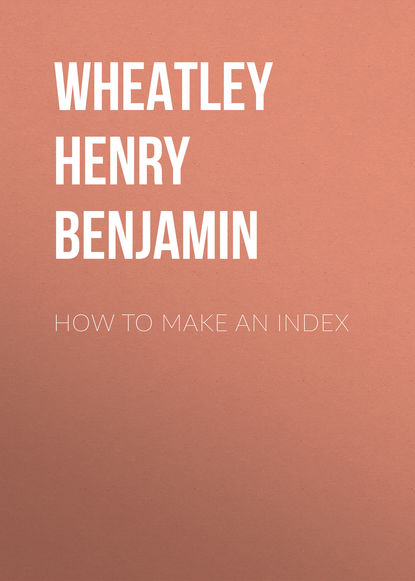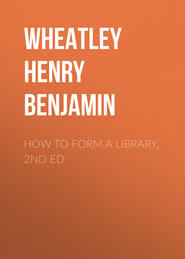По всем вопросам обращайтесь на: info@litportal.ru
(©) 2003-2024.
✖
How to Make an Index
Автор
Год написания книги
2018
Настройки чтения
Размер шрифта
Высота строк
Поля
"Afternoon Outing of the Skelmersdale Lodge."
"An Oration delivered," etc.
"Annual Outing of the Queen Victoria Lodge."
"Another Masonic MS."
Under B:
"Bro. Bain's Masonic Library."
Under F:
"First Ball of the Fellowship Lodge.
"First Ladies' Night."
Under I:
"Interesting Extract from an 'Old Masonian's' Letter."
Under L:
"Ladies' Banquet."
"Ladies' Night."
"Ladies' Summer Outing."
"Late Bro. Sir B. W. Richardson."
Under N:
"New Grand Officers."
"New Home for Keighley Freemasons."
"New Masonic Hall."
Under O:
"Our Portrait Gallery."
Under R:
"Recent Festival."
Under S:
"Send-off dinner."
"Summer Festival."
"Summer Outing."
Under T:
"Third Ladies' Night."
Under Y:
"Ye olde Masonians."
There are many other absurd headings, but these are the worst instances. They show the confusion of not only placing references where they would never be looked for, but of giving similar entries all over the index under whatever heading came first to the mind of the indexer. For instance, there is one Afternoon Outing, one Annual Outing, one Ladies' Outing, one Summer Outing, and three other Outings under O. None of these have any references the one from the other.
There are a large number of indexes in which not only the best heading is not chosen, but the very worst is. Thus, choosing at random, we find such an order as the following in an old volume of the Canadian Journal:
"A Monograph of the British Spongiadæ."
"On the Iodide of Barium."
"Sir Charles Barry, a Biography."
"The late Professor Boole."
"The Mohawk Language."
The same misarrangement will sometimes be found even in standard English journals.
The edition of Jewel's Apology, published by Isaacson in 1825, contains an index which is worthy of special remark. It is divided into four alphabets, referring respectively to (1) Life; (2) Apology; (3) Notes to Life; (4) Notes to Apology; and this complicated machinery is attached to a book of only 286 pages. I think it is scarcely too much to say that there is hardly an entry in the index which would be of any use to the consulter. A few examples will show that this is not an unfair judgment:
"Belief of a Resurrection."
"Caution, Reformers proceeded with Caution."
"If Protestants are Heretics let the Papists prove them so from Scripture."
"In withdrawing themselves from the Church of Rome, Protestants have not erred from Christ and his Apostles."
"King John."
"The Pope assumes Regal power and habit."
"Ditto employs spies."
That this idiotic kind of index (which can be of no possible use to any one) is not yet extinct may be seen in one of those daintily printed books of essays which are now so common. In mercy I will not mention the title, but merely say that it was published in 1901. A few extracts will show the character of the work:
"A Book," etc.









